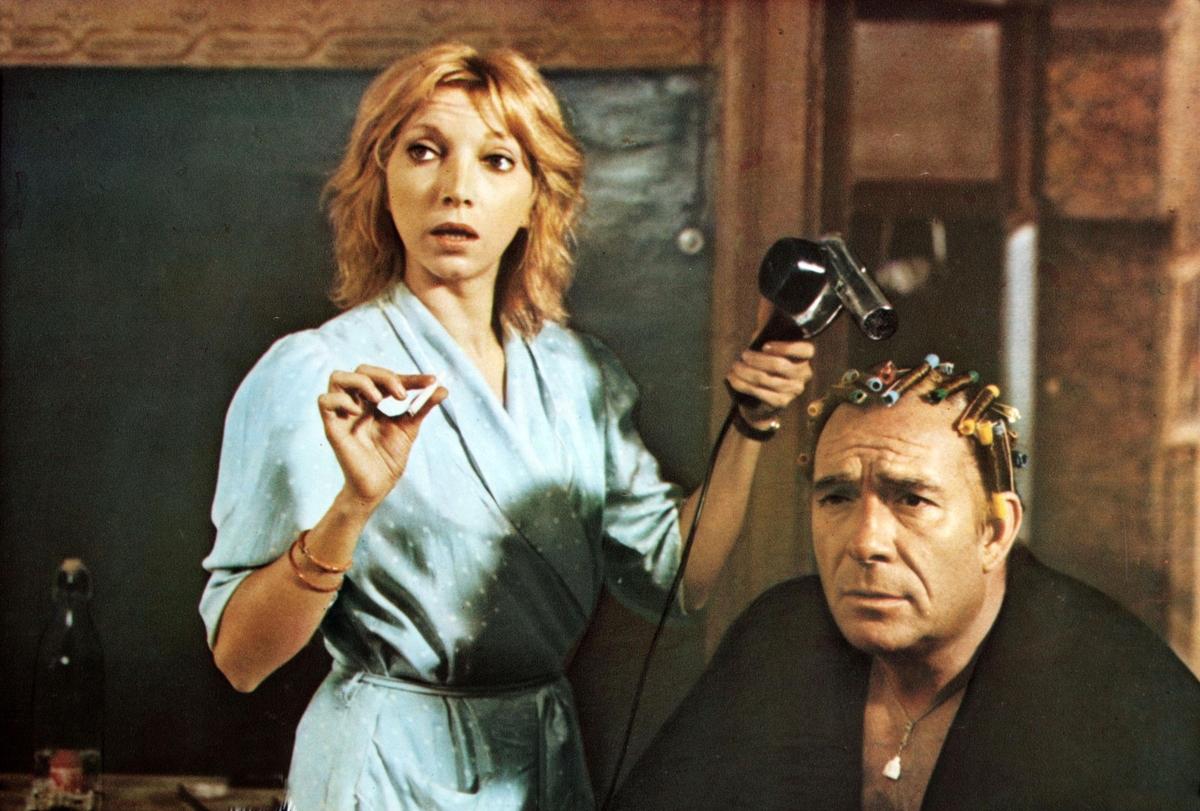A Cinematic Masterpiece with Mariangela Melato’s Unforgettable Performance
In the realm of cinema, certain films transcend time and cultural boundaries to etch themselves into the annals of cinematic history. Lina Wertmüller’s 1973 masterpiece, “Love and Anarchy”, is undoubtedly one such gem. At the heart of this Italian classic lies a gripping tale of love, political turmoil, and human resilience. However, it is the spellbinding performance of Mariangela Melato that elevates the film to a level of timeless brilliance.
“Love and Anarchy” is set against the backdrop of Italy during the tumultuous years leading up to World War II. It follows the story of Tunin ( Giancarlo Giannini), a naive and idealistic peasant who arrives in Rome with the sole purpose of assassinating Benito Mussolini. His plan is soon complicated when he meets Salome (Mariangela Melato). A fiery and enigmatic prostitute who introduces him to the chaotic world of the city’s underground anarchist movement.
Melato’s portrayal of Salome is nothing short of mesmerizing. She infuses the character with a magnetic blend of sensuality and strength, creating a woman who is unapologetically in charge of her own destiny. Salome is not just a prostitute; she is a symbol of resistance against fascism. She embodies a woman who uses her charms to navigate the perilous political landscape of the era. Melato’s performance captures the essence of a complex character who is both vulnerable and fiercely determined, making Salome a character impossible to forget.
One of the most remarkable aspects of Melato’s performance is her ability to convey a wide range of emotions with subtlety and depth. She effortlessly transitions from moments of tender vulnerability to scenes of unbridled passion. Her impeccable timing and delivery keep the audience emotionally invested throughout the film. In a particular scene where Salome and Tunin share a clandestine moment in a hotel room. Melato’s performance is a masterclass in conveying desire, desperation, and hope without the need for excessive dialogue.
Melato’s physicality in the role is equally impressive. She uses her body language to communicate Salome’s resilience and determination. Whether it’s the way she confidently strides through the streets of Rome or the subtle shifts in her posture during moments of vulnerability, Melato’s physical presence adds layers of depth to her character.
The chemistry between Melato and Giancarlo Giannini is electric and contributes significantly to the film’s success. Their on-screen dynamic crackles with tension and passion, making the audience deeply invested in their characters’ fates. Melato’s Salome serves as the perfect foil to Giannini’s Tunin, creating a captivating yin and yang relationship that propels the narrative forward.
In addition to Melato’s exceptional performance, Wertmüller’s direction and storytelling prowess must be acknowledged. She masterfully balances the political and personal aspects of the story, weaving a compelling narrative that delves into the complexities of love and resistance. Her ability to capture the essence of Italy’s political climate at the time while maintaining a deeply human focus on the characters is a testament to her skill as a filmmaker.
“Love and Anarchy” is not just a film; it is a cinematic triumph that continues to resonate with audiences today. At its heart is Mariangela Melato’s unforgettable portrayal of Salome, a character who embodies the spirit of love and anarchy. Her performance is a testament to the power of cinema to illuminate the human condition and leave an indelible mark on our hearts and minds. In the world of film, “Love and Anarchy” stands as a shining example of storytelling and acting at its finest with Mariangela Melato’s performance as its crowning jewel.
Watch this movie and many more on www.movieitalyplus.com
Read our articles here!






